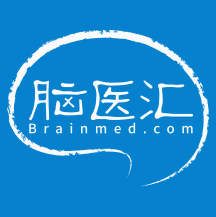The Lancet Neurology
本篇文献由机器智能翻译
Pragmatic solutions to reduce the global burden of stroke: a World Stroke Organization–Lancet Neurology Commission
减轻全球卒中负担的务实解决方案:世界卒中组织-柳叶刀神经病学委员会
In this Commission, we forecast the burden of stroke from 2020 to 2050. We project that stroke mortality will increase by 50%—from 6·6 million (95% uncertainty interval [UI] 6·0 million–7·1 million) in 2020, to 9·7 million (8·0 million–11·6 million) in 2050—with disability-adjusted life-years (DALYs) growing over the same period from 144·8 million (133·9 million–156·9 million) in 2020, to 189·3 million (161·8 million–224·9 million) in 2050. These projections prompted us to do a situational analysis across the four pillars of the stroke quadrangle: surveillance, prevention, acute care, and rehabilitation. We have also identified the barriers to, and facilitators for, the achievement of these four pillars. Disability-adjusted life-years (DALYs)...
在本委员会中,我们预测了2020年至2050年的中风负担。我们预计中风死亡率将增加50%-从660万(95%不确定区间[UI] 6.0百万-7.1百万),2020年,至9.7百万(800万-1160万)-残疾调整生命年(DADs)同期从1.448亿(1.339亿-1.569亿),到2050年为1.893亿(1.618亿-2.249亿)。这些预测促使我们对中风四边形的四个支柱进行情景分析:监测,预防,急性护理和康复。我们还确定了实现这四个支柱的障碍和促进因素。残疾调整生命年(Disability-adjusted life-years,DIFFERS)
REF: Feigin VL, Owolabi MO; World Stroke Organization–Lancet Neurology Commission Stroke Collaboration Group. Pragmatic solutions to reduce the global burden of stroke: a World Stroke Organization-Lancet Neurology Commission [published correction appears in Lancet Neurol. 2023 Dec;22(12):e13]. Lancet Neurol. 2023;22(12):1160-1206. doi:10.1016/S1474-4422(23)00277-6 PMID: 37827183 PMCID: PMC10715732
Neurological adverse events related to immune-checkpoint inhibitors in Spain: a retrospective cohort study
西班牙与免疫检查点抑制剂相关的神经系统不良事件:一项回顾性队列研究
Neurological immune-related adverse events associated with immune checkpoint inhibitors can have several clinical manifestations, but the syndromes and prognostic factors are still not well known. We aimed to characterise and group the clinical features, with a special focus in patients presenting with encephalopathy, and to identify predictors of response to therapy and survival. Most neurological immune-related adverse events involved the CNS and were antibody negative. The presence of myocarditis, myasthenia, and myositis, of encephalopathy without inflammatory changes, or of lung cancer were independent predictors of death. Most deaths occurred during the first month of symptom onset. If our findings are replicated in additional cohorts, they could confirm that these patients need early and intensive treatment.
与免疫检查点抑制剂相关的神经免疫相关不良事件可以有几种临床表现,但症状和预后因素仍不清楚。我们的目的是描述和分组临床特征,特别关注表现为脑病的患者,并确定治疗反应和生存的预测因素。大多数神经免疫相关的不良事件涉及中枢神经系统,且抗体阴性。心肌炎、肌无力和肌炎、无炎症性改变的脑病或肺癌是死亡的独立预测因素。大多数死亡发生在症状出现的第一个月。如果我们的发现在更多的队列中重复,他们可能会证实这些患者需要早期和强化治疗。
REF: Fonseca E, Cabrera-Maqueda JM, Ruiz-García R, et al. Neurological adverse events related to immune-checkpoint inhibitors in Spain: a retrospective cohort study. Lancet Neurol. 2023;22(12):1150-1159. doi:10.1016/S1474-4422(23)00335-6 PMID: 37977714
Effects of oral anticoagulation in people with atrial fibrillation after spontaneous intracranial haemorrhage (COCROACH): prospective, individual participant data meta-analysis of randomised trials
口服抗凝对自发性颅内出血后心房颤动患者的影响:随机试验的前瞻性、个体参与者数据荟萃分析
The safety and efficacy of oral anticoagulation for prevention of major adverse cardiovascular events in people with atrial fibrillation and spontaneous intracranial haemorrhage are uncertain. We planned to estimate the effects of starting versus avoiding oral anticoagulation in people with spontaneous intracranial haemorrhage and atrial fibrillation. For people with atrial fibrillation and intracranial haemorrhage, oral anticoagulation had uncertain effects on the risk of any stroke or cardiovascular death (both overall and in subgroups), haemorrhagic major adverse cardiovascular events, and functional outcome. Oral anticoagulation reduced the risk of ischaemic major adverse cardiovascular events, which can inform clinical practice. These findings should encourage recruitment to, and completion of, ongoing trials.
口服抗凝预防房颤和自发性颅内出血患者主要心血管不良事件的安全性和有效性尚不确定。我们计划评估在自发性颅内出血和房颤患者中开始和避免口服抗凝的效果。对于心房颤动和颅内出血的患者,口服抗凝对任何中风或心血管死亡的风险(包括整体和亚组)、出血性主要不良心血管事件和功能结局的影响都不确定。口服抗凝降低了缺血性主要心血管不良事件的风险,这可以为临床实践提供参考。这些发现应该会鼓励招募和完成正在进行的试验。
REF: Al-Shahi Salman R, Stephen J, Tierney JF, et al. Effects of oral anticoagulation in people with atrial fibrillation after spontaneous intracranial haemorrhage (COCROACH): prospective, individual participant data meta-analysis of randomised trials. Lancet Neurol. 2023;22(12):1140-1149. doi:10.1016/S1474-4422(23)00315-0 PMID: 37839434
Safety and efficacy of gene replacement therapy for X-linked myotubular myopathy (ASPIRO): a multinational, open-label, dose-escalation trial
X连锁肌管性肌病(Aspiro)基因替代治疗的安全性和有效性:一项跨国、开放标签、剂量递增试验
X-linked myotubular myopathy is a rare, life-threatening, congenital muscle disease observed mostly in males, which is caused by mutations in MTM1. No therapies are approved for this disease. We aimed to assess the safety and efficacy of resamirigene bilparvovec, which is an adeno-associated viral vector serotype 8 delivering human MTM1. Most children with X-linked myotubular myopathy who received MTM1 gene replacement therapy had important improvements in ventilator dependence and motor function, with more than half of dosed participants achieving ventilator independence and some attaining the ability to walk independently. Investigations into the risk for underlying hepatobiliary disease in X-linked myotubular myopathy, and the need for monitoring of liver function before gene replacement therapy, are ongoing.
X连锁肌管性肌病是一种罕见的、危及生命的先天性肌肉疾病,主要见于男性,由MTM1突变引起。这种疾病还没有得到批准的治疗方法。我们的目标是评估雷米里奇的安全性和有效性,这是一种携带人MTM1的8型腺相关病毒载体。大多数接受MTM1基因替代治疗的X连锁肌管性肌病儿童在呼吸机依赖性和运动功能方面都有重要改善,超过一半的受试者实现了呼吸机独立,一些人获得了独立行走的能力。对X连锁肌管肌病潜在肝胆疾病的风险以及在基因替代治疗之前监测肝功能的必要性的调查正在进行中。
REF: Shieh PB, Kuntz NL, Dowling JJ, et al. Safety and efficacy of gene replacement therapy for X-linked myotubular myopathy (ASPIRO): a multinational, open-label, dose-escalation trial. Lancet Neurol. 2023;22(12):1125-1139. doi:10.1016/S1474-4422(23)00313-7 PMID: 37977713
Classic ketogenic diet versus further antiseizure medicine in infants with drug-resistant epilepsy (KIWE): a UK, multicentre, open-label, randomised clinical trial
婴儿难治性癫痫(KIWE)经典生酮饮食与进一步抗癫痫药物的比较:一项英国多中心、开放标签、随机临床试验
Many infancy-onset epilepsies have poor prognosis for seizure control and neurodevelopmental outcome. Ketogenic diets can improve seizures in children older than 2 years and adults who are unresponsive to antiseizure medicines. We aimed to establish the efficacy of a classic ketogenic diet at reducing seizure frequency compared with further antiseizure medicine in infants with drug-resistant epilepsy. In this phase 4 trial, a ketogenic diet did not differ in efficacy and tolerability to a further antiseizure medication, and it appears to be safe to use in infants with drug-resistant epilepsy. A ketogenic diet could be a treatment option in infants whose seizures continue despite previously trying two antiseizure medications.
许多婴儿期癫痫在癫痫控制和神经发育结局方面预后较差。生酮饮食可以改善2岁以上儿童和对抗癫痫药物无效的成年人的癫痫发作。我们的目的是确定与进一步的抗癫痫药物相比,经典生酮饮食在减少难治性癫痫婴儿发作频率方面的有效性。在这项4期试验中,生酮饮食在有效性和对进一步的抗癫痫药物的耐受性方面没有差异,似乎可以安全地用于耐药癫痫的婴儿。生酮饮食可能是婴儿的一种治疗选择,尽管之前尝试了两种抗癫痫药物,但癫痫仍在继续。
REF: Schoeler NE, Marston L, Lyons L, et al. Classic ketogenic diet versus further antiseizure medicine in infants with drug-resistant epilepsy (KIWE): a UK, multicentre, open-label, randomised clinical trial. Lancet Neurol. 2023;22(12):1113-1124. doi:10.1016/S1474-4422(23)00370-8 PMID: 37977712
Treatment of drug-resistant epilepsy: diet or pill?
治疗耐药性癫痫:饮食或药丸?
Drug-resistant epilepsy in children is a serious condition that leads to long-term mortality and disability. Early and effective treatment of drug-resistant epilepsy is important to halt its progression, which can be further exacerbated by the cumulative adverse effects of antiseizure medications and uncontrolled seizures. If two antiseizure medications have previously been tried unsuccessfully, further treatment options to be considered include another antiseizure medication or an alternative therapy, such as a ketogenic diet or surgery. 1 However, the evidence to guide clinical decision-making regarding the best choice from these options needs to be obtained from randomised clinical trials.
儿童的抗药性癫痫是一种严重的疾病,会导致长期的死亡和残疾。对耐药癫痫的早期有效治疗对于阻止其发展至关重要,抗癫痫药物和失控发作的累积不良影响可能会进一步加剧这种情况。如果之前曾尝试过两种抗癫痫药物但未获成功,则需要考虑的进一步治疗方案包括另一种抗癫痫药物或另一种替代疗法,如生酮饮食或手术。然而,指导临床决策的证据需要从随机临床试验中获得,以确定这些选项中的最佳选择。
REF: Patel M. Treatment of drug-resistant epilepsy: diet or pill?. Lancet Neurol. 2023;22(12):1088-1089. doi:10.1016/S1474-4422(23)00417-9 PMID: 37977699
Gene therapy for X-linked myotubular myopathy: the challenges
X连锁肌管性肌病的基因治疗:挑战
X-linked myotubular myopathy is a rare congenital myopathy caused by pathogenic variants in the MTM1 gene. The disease is severe in 80% of affected boys, with profound skeletal muscle weakness, respiratory weakness, and dysphagia at birth. 1 Without intervention, more than 50% of these children will die within the first 18 months of life, and those who survive will often require assisted ventilation.
X连锁肌管性肌病是一种罕见的先天性肌病,由MTM1基因的致病变异引起。这种疾病在80%的受影响男孩中是严重的,出生时就有严重的骨骼肌无力、呼吸无力和吞咽困难。1如果不进行干预,这些儿童中有50%以上将在出生后的头18个月内死亡,而那些幸存下来的儿童往往需要辅助呼吸。
REF: Voermans NC, Ferreiro A, Aartsema-Rus A, Jungbluth H. Gene therapy for X-linked myotubular myopathy: the challenges [published correction appears in Lancet Neurol. 2024 Feb;23(2):e2]. Lancet Neurol. 2023;22(12):1089-1091. doi:10.1016/S1474-4422(23)00416-7 PMID: 37977700
Anticoagulation in people with atrial fibrillation after intracranial haemorrhage
颅内出血后房颤患者的抗凝治疗
For people with atrial fibrillation, anticoagulation can reduce the risk of stroke by approximately two-thirds. However, their risk of bleeding is high, causing a dilemma for clinicians on whether to prescribe anticoagulants or not when managing these patients after intracranial haemorrhage. Therefore, it is crucial to evaluate risks versus benefits of anticoagulants in these high-risk patients. Fortunately, since the warfarin era, the balance between benefit and risk of bleeding has now improved with the use of direct oral anticoagulants. The risk of a first event of intracranial haemorrhage is reduced by about half in people with atrial fibrillation treated with direct oral anticoagulants, compared with warfarin. 1 However, the safety and efficacy of anticoagulation with direct oral anticoagulants in patients with atrial fibrillation after intracranial haemorrhage is unclear, because these patients are typically excluded from randomised controlled trials.
对于患有房颤的人,抗凝可以将中风的风险降低约三分之二。然而,他们的出血风险很高,这给临床医生造成了一个两难的境地,即在处理这些患者的颅内出血后,是否应该开抗凝药物。因此,在这些高危患者中评估抗凝药物的风险和益处是至关重要的。幸运的是,自华法林时代以来,随着直接口服抗凝剂的使用,好处和出血风险之间的平衡现在有所改善。与华法林相比,接受直接口服抗凝剂治疗的房颤患者首次发生颅内出血的风险降低了约一半。然而,颅内出血后房颤患者使用直接口服抗凝剂进行抗凝的安全性和有效性尚不清楚,因为这些患者通常被排除在随机对照试验之外。
REF: Uchiyama S. Anticoagulation in people with atrial fibrillation after intracranial haemorrhage. Lancet Neurol. 2023;22(12):1091-1092. doi:10.1016/S1474-4422(23)00331-9 PMID: 37839435
Immune-checkpoint inhibitors and neurological adverse events
免疫检查点抑制剂和神经系统不良事件
Immune-checkpoint inhibitors are specific monoclonal antibodies that block immunological inhibitors of T cells. Such antibodies are used with increasing frequency to treat several types of cancer but can cause various immunological toxic effects. In The Lancet Neurology, Elianet Fonseca and colleagues 1 report a retrospective study of patients who had neurological adverse events after receiving an immune-checkpoint inhibitors. The findings add to existing knowledge about these adverse events and emphasise the need for greater coordination between oncologists and neurologists.
免疫检查点抑制物是一种特异性的单抗,可以阻断T细胞的免疫抑制物。这种抗体被越来越频繁地用于治疗几种类型的癌症,但可能会引起各种免疫毒性效应。在《柳叶刀神经学》杂志上,Elianet Fonseca和他的同事1报告了一项对接受免疫检查点抑制剂后发生神经不良事件的患者的回顾性研究。这些发现增加了对这些不良事件的现有知识,并强调了肿瘤学家和神经学家之间加强协调的必要性。
REF: Tummala S. Immune-checkpoint inhibitors and neurological adverse events. Lancet Neurol. 2023;22(12):1093-1094. doi:10.1016/S1474-4422(23)00413-1 PMID: 暂无
- 1
- 2












